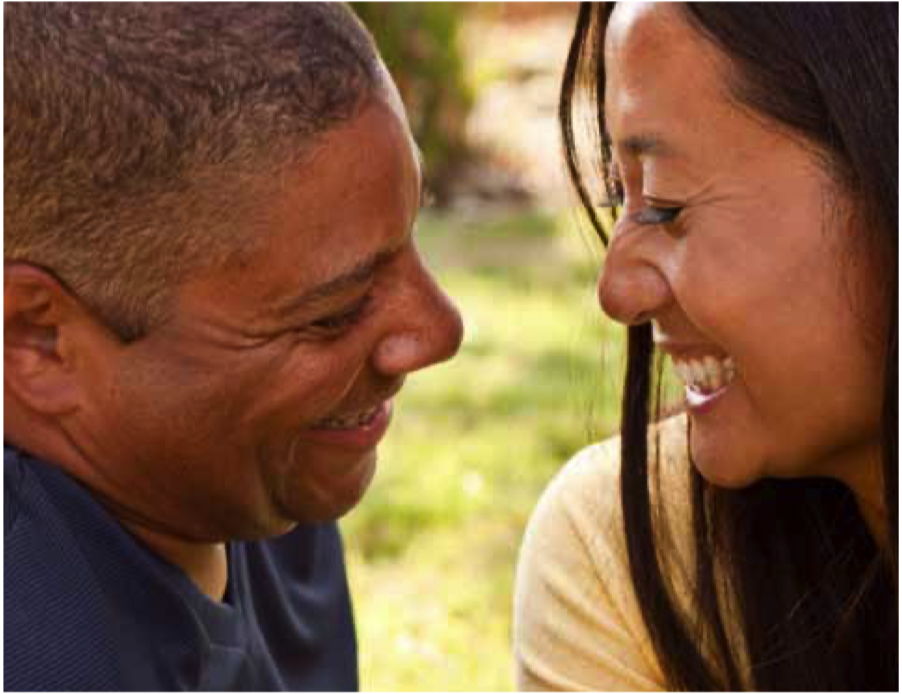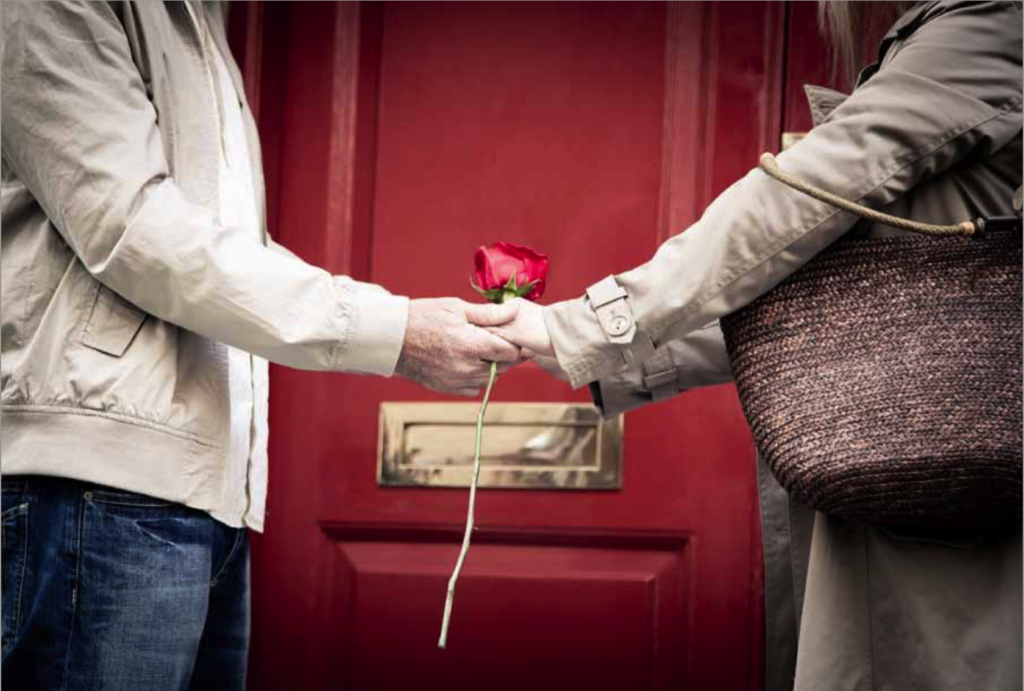Sex and the New Normal
Establishing intimacy after recovery
by Claire Parins

Building healthy, intimate relationships can be difficult for most people in even the best of circumstances. For those new to recovery, it can be doubly challenging.
Making yourself vulnerable is often part of getting healthy. But opening up and getting close, both emotionally and physically, can trigger feelings of fear and might even make you want to return to bad habits. The good news is there are a number of things you can do to work through the awkwardness of getting close for the first time and to alleviate some of the fear you might be feeling.
Everything is Different
Janet Brown has been a therapist specializing in relationships, addiction and trauma for 20 years. She has been in recovery for alcohol addiction for the last two. For her, everything was different after going into recovery, and dating was not easy at first.
“For years, I used alcohol to mask my anxiety,” Brown says. “When I was new to recovery and didn’t use alcohol as a smokescreen, my senses were at first overloaded. Kissing was new. It felt different because there I was with all my senses. Things seemed more intense. My inhibitions were also all right there along with past experiences.”
Jyude Allbright, an addiction therapist from Fort Lauderdale, Fla., who has been in recovery for about 25 years, agrees that the feelings a person experiences when new to recovery can complicate matters.
“Sex is about emotions,” Allbright says. “It’s all in the head. That’s why, if a woman is ashamed of her body (as many women are), it’s important to try to work through the shame before getting close to someone.”
Allbright was in her late 30s when she quit drinking. At the time, she’d been married for 18 years and had never had an orgasm. When she heard girlfriends in recovery describe what orgasms were like, she knew she needed to learn some things on her own.
“I was a virgin when I got married and never experienced sex the way it could be until recovery,” she says. “During my marriage, I drank to sedate the fact that something was wrong with the marriage.”

She says she made numb her sensuality because her ex-husband didn’t want her to express that side of herself. But Allbright says she is grateful for that relationship. “All my experiences, bad and good, taught me where I belong,” Allbright says. “Addiction, for me, was a way to learn what I did not want to be.”
The Healthier You Are, the Better it Gets
As she got healthier in recovery, Allbright noticed she went from an alcoholic husband to a workaholic boyfriend, then a shopaholic boyfriend. The more her addictions lessened and she developed her own spirituality, Allbright says she began to attract people who were also healthier.
Her advice to those new to recovery is to find out who you are before you consider dating, let alone having sex. “We attract what we believe about ourselves on an unconscious level,” Allbright says. “If you are feeling ashamed about yourself on any level, you might attract someone who’s abusive or who does not appreciate you.”
It’s important to make friends with who you were in the past. Accept what you’ve done. Forgive yourself. Allbright recommends staying away from forging new romantic relationships for at least six months to a year. “You’re like a new baby, learning everything over again and clearing your body of chemicals,” she says.
Getting Past Old Habits and new Fears
Pat Love, a certified relationship educator, says there are ground rules you should consider as you move forward and establish new intimacy. First, don’t let the intensity of dating throw you off your recovery.
“Addicts tell me the good feelings of dating make them remember the good feelings they had while drinking and that this can trigger a desire to drink again,” says Love.
Love identifies practical things you can do to work through such desires:
» Identify your triggers for wanting to drink, then plan a strategy for what you will do if a trigger fires.
If you used to drink while getting ready for a date, ask yourself what you will do instead. Make yourself a nonalcoholic drink, and put it in a wine glass. Better yet, make a plan to meditate or to call your sponsor if you find yourself wanting to drink.
» If you are on a date and get nervous or want a drink, stay in the moment.
Love says to ground yourself in the time and place you are in. Feel the palm of your hand with your fingertips. Feel your tongue on the roof of your mouth. Look at the brightest color in the restaurant. Grounding helps you push past fear.
» Before having sex, take things slowly until an appropriate relationship is developed.
The most important thing, Love says, is to take things slowly until you are ready and you’ve developed a good relationship with the other person.
“When people are in recovery, part of recovery is deep relational being,” Love says. “Making yourself vulnerable is par for the course.” Love believes when people in recovery go to meetings, they expect intimacy. The problem is sometimes those who are new to recovery extend this kind of intimacy to dating and take things too fast. “Don’t expect on a first date to talk too intimately.”
“I was a virgin when I got married and never experienced sex the way it could be until recovery.”
And practice patience. A new relationship may not have the depth of those people in recovery find at Twelve Step meetings, but give it time. The takeaway: Don’t walk away too soon from perfectly good relationships.
Brown agrees: “In the rooms, we talk at a deep level of intimacy. It’s not appropriate to expect this same kind of intimacy when you are first getting to date someone.” Brown also noticed that when she first started dating, it was easier to see the foibles in potential partners. Sober, she was able to sees things such as self-centeredness, rudeness to wait staff, and some of these traits seemed glaring. This new awareness is good, but don’t expect people to be perfect.
Examine Your Intentions
Both Brown and Love say to make sure sex is mutual and not just a stress releaser.
“We attract what we believe about ourselves on an unconscious level. If you are feeling ashamed about yourself on any level, you might attract someone who’s abusive or who does not appreciate you.”
Be intentional and clear about why you are doing it. Ask if you are having sex to impress or to reel the person in.
“Addicts can sometimes use sex or substances as ways to create intimacy prematurely,” Love says. “As long as things are mutually respectful and the intentions are good, you are in a good position to avoid regret or shame that can retrigger the addiction.”
For many in recovery from drug and alcohol addictions, sex often happened when under the influence. Although inhibitions may have fallen away, the general consensus is that if you have sex while under the influence, you aren’t all there for your partner or yourself.
If you are newly dating and it seems like sex is the next step, remember if it does not feel OK, then don’t do it. “Listen to your body,” Brown says. “You can stop at any point. The body always know the truth.”
Claire Parins is an editorial director for the American Bar Association’s Publishing Services Group and a regular contributor for Renew.




No responses yet